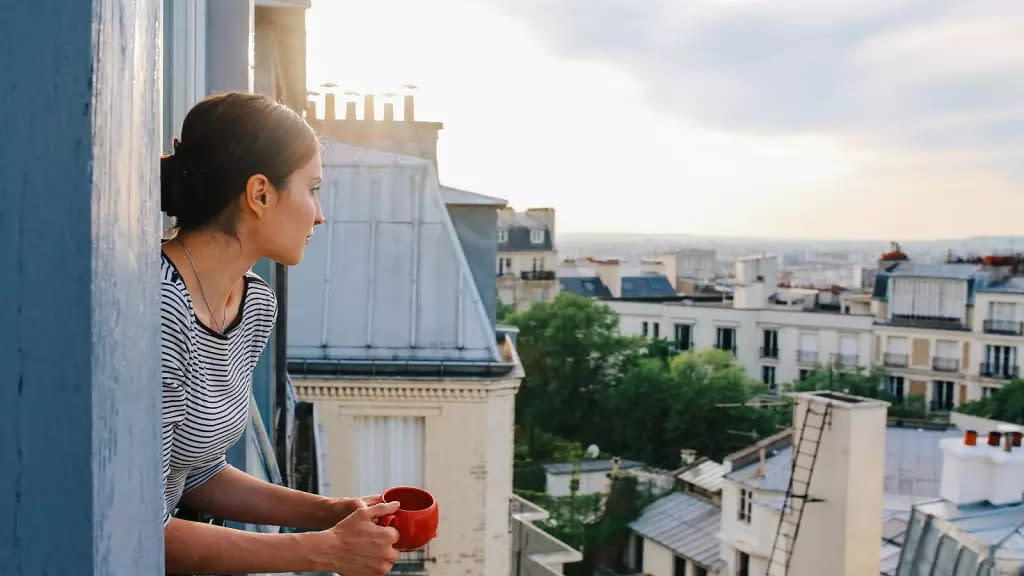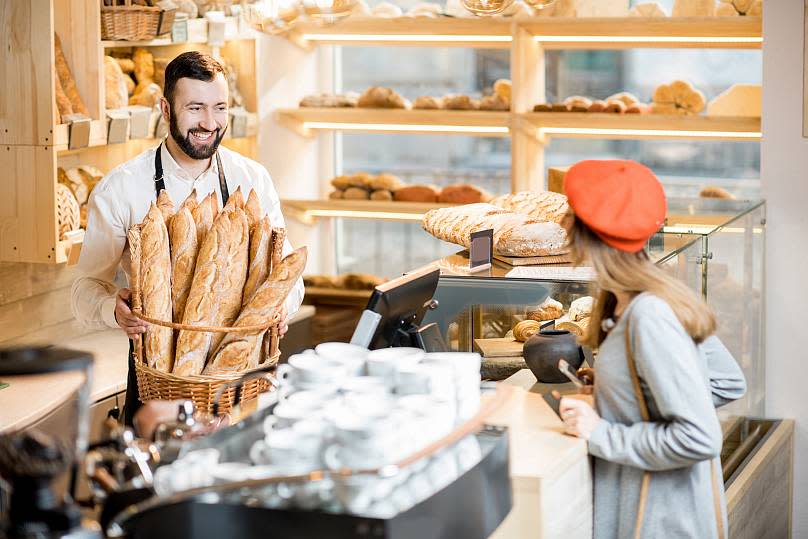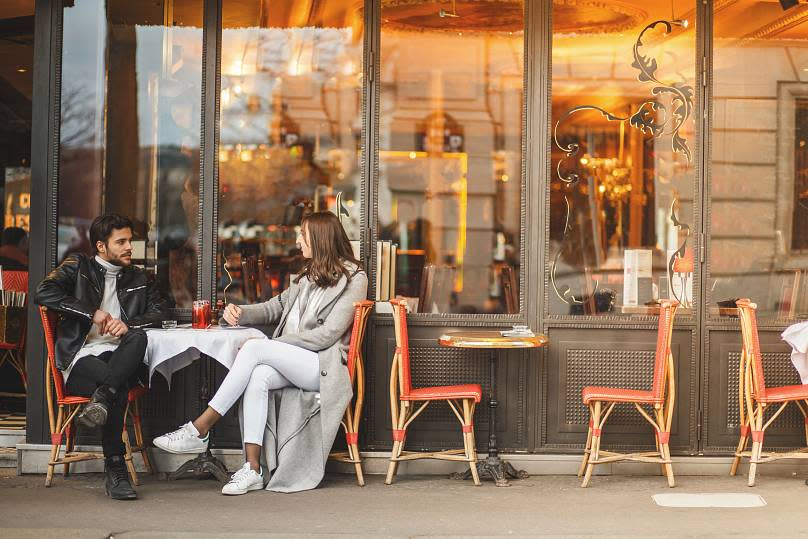Don't snack, be pushy: Expats in France give their top tips for settling in

Moving to another country - even one you’ve visited many times - is always a leap into the unknown. Whether you’re travelling with just the clothes on your back and a dream in your heart, or have a brood of dependents and everything but the kitchen sink, there’s a lot to navigate as an expat.
Those bound for France are likely to be carrying a fair few assumptions too. You don’t have to be a Francophile to have absorbed the romantic ideas of France.
You might imagine you’ll be spending hours people-watching from cafe terraces in a plume of smoke and rosé, chasing after film stars by red moped or leaving a trail of clues for your lover around the Sacré-Cœur à la Amelie.
It’s good to keep the magic alive as you settle into your new life, but the reality is probably more mundane, especially if you’ve moved for work reasons rather than time travelled to the Belle Époque or 1990s Montmartre.
Luckily, you’re in the right place for tips. Euronews is based in Lyon, and has a team who have travelled from all over to be here, so we’ve got plenty of wisdom to share.
I’m a post-Brexit expat who took a training course to learn how to be French - here’s how I got on
I moved to France without being able to speak French and now they love me
French social life

You’re probably not oblivious to the fact that the French aren’t exactly known for their friendly, gushy personalities. Don’t expect to stumble out of Charles de Gaulle and make best buddies with someone straight away; it will take a little longer to spark a bit of bonhomie.
Arriving as a student from Mexico, Amaranta Zermeno was struck by the French coolness. “Life in France is much better than the way the French treat you,” she says. “Coming from a country where people tend to be much friendlier, I found the French terribly cold and to this day I still find it difficult to integrate with them.”
Alisa Crawley from Edinburgh has found people to thaw over time, however. “French people seem scary and fierce and a bit snappy when you first meet them but they are soooo nice underneath,” she says, in comparison to Brits and Americans “who are super friendly upfront but won’t invite you round to theirs.”
Learning the language is of course key to breaking down the Gallic defenses. Though polite conversation can feel like hard work at times. “Ca va? Oui ca va, ca va et toi ca va? Oui, ca va," is a genuine opener in French, notes Alexandra Leistner, who moved from Germany a decade ago.
In professional settings, “Be ready to be assertive and persistent,” advises Ian Smith. “If you want to get things done in France you have to learn to be annoying and follow up frequently.”
The famed French bureaucracy
The amount of paperwork involved in moving country is daunting for any would-be expat, but French officials are known to take things to another level.
Keeping track of what’s due when - and doing it ahead of time - is crucial.
That means applying to renew your visa six months before it expires, says James Thomas, even if you’re told two or three months. In his experience, delays can be so bad that you won’t get an appointment at the local prefecture until three or four months after your visa expires.
“While no one is going to come hunting you down to deport you in the meantime, being left in visa limbo can be very disconcerting,” he says.
As well as being efficient, you also need to be nimble. Coming from New Zealand, Jennifer Burke had to jump through a “million hoops” to open a bank account, something that takes “2 minutes” back home. There can be a circuitous logic at play too, she says.
“You need all kinds of certificates like an electricity bill to prove you live in France, but you are unlikely to get a flat without a job, and when you have a job you need a bank account for them to pay you…”
Birth certificates are necessary for a range of things, notes Ian. “It makes no sense, it’s inconvenient and outdated. But welcome to the joys of French bureaucracy. They also want a certified translation of the original which will set you back around €80.” The Irishman did find that this wasn’t totally essential, however, and got his social security number regardless.
Finally, taxes. Nine years after moving from Britain, Emma Beswick warns that “Declaring your taxes will bring you to your knees. But don’t worry, French people don’t know what they’re doing either,” she adds. “And every year the deadline will surprise you. But don’t miss it because you WILL get fined.”
Refining your dining in France

The country prides itself on its food and drink, and for good reason. You’re unlikely to be gastronomically disappointed in France, though the coverage for veggies and vegans is scant in places.
But being part of such a foodie nation means that you’ve also got to raise your standards, and abide by certain rules you might not have noticed before.
“Don’t eat on the go or on public transport, people will think you’re weird,” warns Emma. “I once ate a sandwich on the metro and it was like I’d set off a flare.” Though she conceded it was tuna.
Snacking is a bit of a faux pas wherever you are, it turns out. "No snacking. I still snack, but every one of my colleagues will comment on it,” says Jennifer.
So if you don’t want to feel self-conscious or hungry at your desk, you’ll need to adjust to French mealtimes. Have early breakfast if you plan on having lunch out, advises Alexandra, as restaurants will only be open between 12pm and 2pm and again at 7pm.
“And get your family and friends when visiting on this schedule otherwise you will roam around cities looking for (good) food and not find anything decent - on an empty stomach which isn't ideal.”
Working hours tend to start and finish later too, meaning later dinners than expats may be used to.
But on the plus side, adds Alexandra, “Be prepared to have your standards of food and drink (especially wine) raised forever. You'll never be able to go back to screw top wine... and that's probably a good thing.”
Italy: You could get paid €15,000 to move to Sardinia. But what's the catch?
We set up Italy’s first digital nomad community in a rural village. This is what we learned.
Surprises from the French health system
Healthcare is an important area to get acquainted with in your new country. And again, one it really pays to have the right language for.
One thing that Jennifer wishes she’d known is that “going to the gynaecologist will be an experience for any Brit, American, Kiwi or Aussie. And maybe for others too. Never in New Zealand do we just get starkers (completely naked).”
Another colleague was surprised to learn that it’s common to take everyday painkillers like ibuprofen and paracetamol as suppositories in France, and it is often the preferred method of taking them.
Things to watch out for in France
Sadly, personal security is a concern in any country. But depending on where you’re migrating from you might need to keep a closer watch on your belongings than you’re used to.
“Buy a bum bag,” advises Ian. “I’ve been pickpocketed four times in my life and every time has been in France. Maybe it took me too long to get the message but I don’t leave anything in my pockets anymore and keep the bag across my body and under my arm when I’m out and about.”
He also notes that many of his foreign female friends have had nasty experiences on the street with catcalling or men following them or insulting them when they reject their advances. “My Irish female friends have found that overt sexism a big challenge.”
Magic or optical illusion? Visit these mysterious gravity-defying hills to test for yourself
Expats rank the best and worst European countries in 2022 for careers, social life and healthcare
Why France is such a wonderful country to move to

Despite the trials and tribulations of moving to France, you’re unlikely to regret jumping country.
“The food is incredible, the living conditions are excellent, and the financial aids I’ve been entitled to as a French resident have been very much appreciated,” says Amaranta.
Ian also observes that, “The French are great at using public spaces. In Ireland, there aren’t many public benches and seating areas and there are often complaints and rubbish left behind when people do sit outside.
“In France there are loads of lovely public areas where you can socialise comfortably and they provide great facilities such as public toilets along the banks of the river and loads of bins to put your rubbish in.”
With 6.5 million immigrants living in France (almost 10 per cent of the population) as of 2018, you’re in good company too. There’s sure to be many people who you can trade tips and laughs with as you find your way in the many-sided l'Hexagone.

 Yahoo News
Yahoo News 






